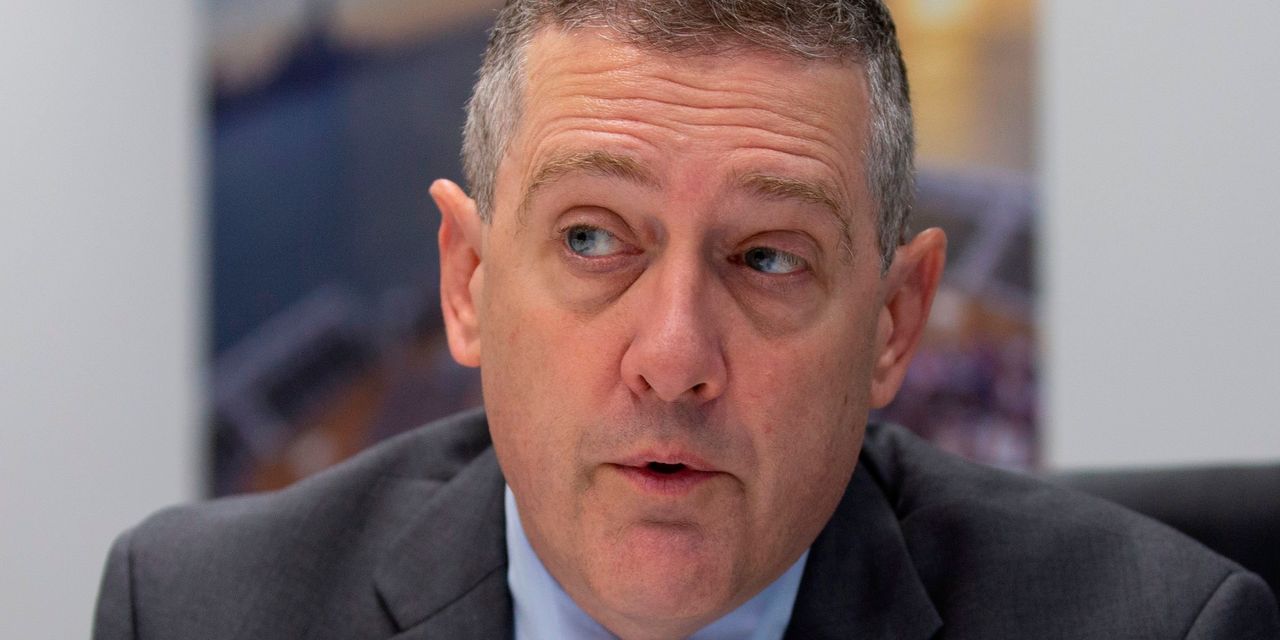The president of the St. Louis Federal Reserve contends the central bank can restore inflation to pre-pandemic lows without triggering a recession, partly because neither investors nor consumers expect prices to keep rising rapidly.
At an event in New York, St. Louis Fed President James Bullard argued in a series of slides that a “soft landing is feasible in the U.S.” That’s a term economists use to describe a successful effort by the Fed to slow the economy without tipping it into recession.
Massive stimulus by the federal government “appears less likely going forward,” Bullard said, “while the Fed is committed to returning inflation to its 2% to 2.5% target.
The easy-money strategy by Washington is seen as having contributed to the worst bout of U.S. inflation in almost 41 years.
Bullard sounded the alarm about rising inflation last year well before the rest of his colleagues, urging them to react before it was too late.
The Fed has belatedly responded by raising rates sharply starting in March after keeping them near zero during the pandemic to prop up the economy.
The Fed in July raised its benchmark short-term interest rate to a range of 2.25% and 2.5%. It’s also signaled it could go to as high as 4% by next year.
Higher rates slow the economy — and thus inflation — by raising the cost of borrowing. Consumers and businesses spend and invest less when rates are high.
The rate of inflation in the U.S. surged to a nearly 41-year high of 9.1% in the 12 months ended in June, up from less than 2% about one and a half years ago. That’s the highest level since 1981.
Yet Bullard noted that inflation expectations by investors and consumers reflect the view that high inflation won’t persist for a long time. Bond rates have fallen since the spring, for example, and surveys of consumers show they think inflation will average less than 3% a year over the next five years.
“Markets presently expect inflation to come under control in the quarters and years ahead,” Bullard noted in a slide-heavy presentation at New York University.
If high inflation was expected to persist in the long run, Bullard said, it would be a lot harder for the Fed to restore price stability.
The combination of high inflation and rising rates, however, has stoked worries about the economy sinking into recession. Bullard and other Fed officials insist such talk is premature and they cast doubt on recent GDP readings that suggest the U.S. has already entered a technical recession.
They acknowledge the risks of a downturn are high and that the Fed can’t afford a major misstep. Nonetheless, they insist they won’t relent on interest rates until they bring down high inflation.
